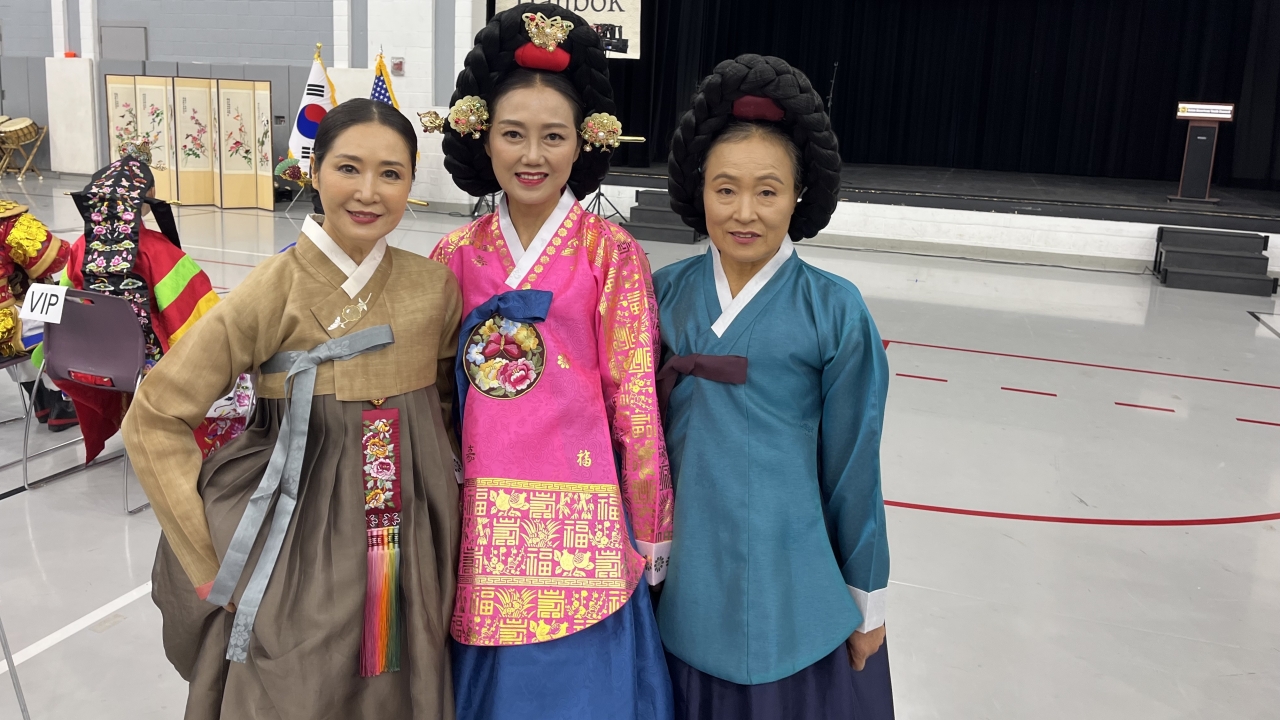For Gene Kang, the hanbok represents history and culture. The Korean American attorney donned a blue silk wedding hanbok fitted with a black cap to celebrate Korean Hanbok Day in New Jersey.
“It’s really important for us to remember our history and culture," Kang said. “It’s going to propel us into the future.”
Kang modeled at the third annual Hanbok Day in New Jersey as colorful silk garments imported from South Korea filled the Fort Lee Community Center.
The United States is the only country outside of South Korea to celebrate Hanbok Day. Since the first festival in Tenafly, New Jersey, three years ago, the festival has expanded to Aurora, Colorado, and Mesa, Arizona. Three states recognize Korean Hanbok Day: New Jersey, Arizona and California.
The term "hanbok" means traditional Korean clothing. The attire dates back to the first century B.C. Korean Hanbok Day is celebrated every year on Oct. 21 in South Korea, often with events throughout the month dedicated to the art of the traditional garment.
In the United States, Hanbok Day was celebrated on Oct. 14 this year at a fashion show in Fort Lee, New Jersey, organized by the Korean American community and the Asian American Youth Council. Over $100,000 worth of clothing was imported from South Korea for the colorful event.
The basic composition of hanbok includes the jeogori jacket, baji pants, chima skirt and po coat. It’s a timeless style that is still worn today.
The hanbok has its roots in the Korean Three Kingdoms period, with its origins in what is now northern Korea and Manchuria.
Dozens of models replicated the historic spirit of the garment at the New Jersey festival. The rich texture and tapestry of the garment were on display with attire for royalty, military, bride and groom and common people.
Hundreds of people filled the auditorium on a rainy day to get a respite from the cold with color. Since the first show three years ago, interest in hosting Hanbok Day has expanded, said Brian Jon, the founder of the Asian American Youth Council. He has been fielding inquiries about hosting the event across the country.
“Our efforts are being put continuously into expanding Hanbok Day,” Jon said.
The modern hanbok is being worn nowadays as casual attire, not just for special occasions. The hanbok is history for Korean Americans, Kang said. Events like Hanbok Day ensure that tradition and history are passed on to future generations.
“We need to understand not just our history in Korea, but our shared history and our experiences here in this country,” Kang said.







